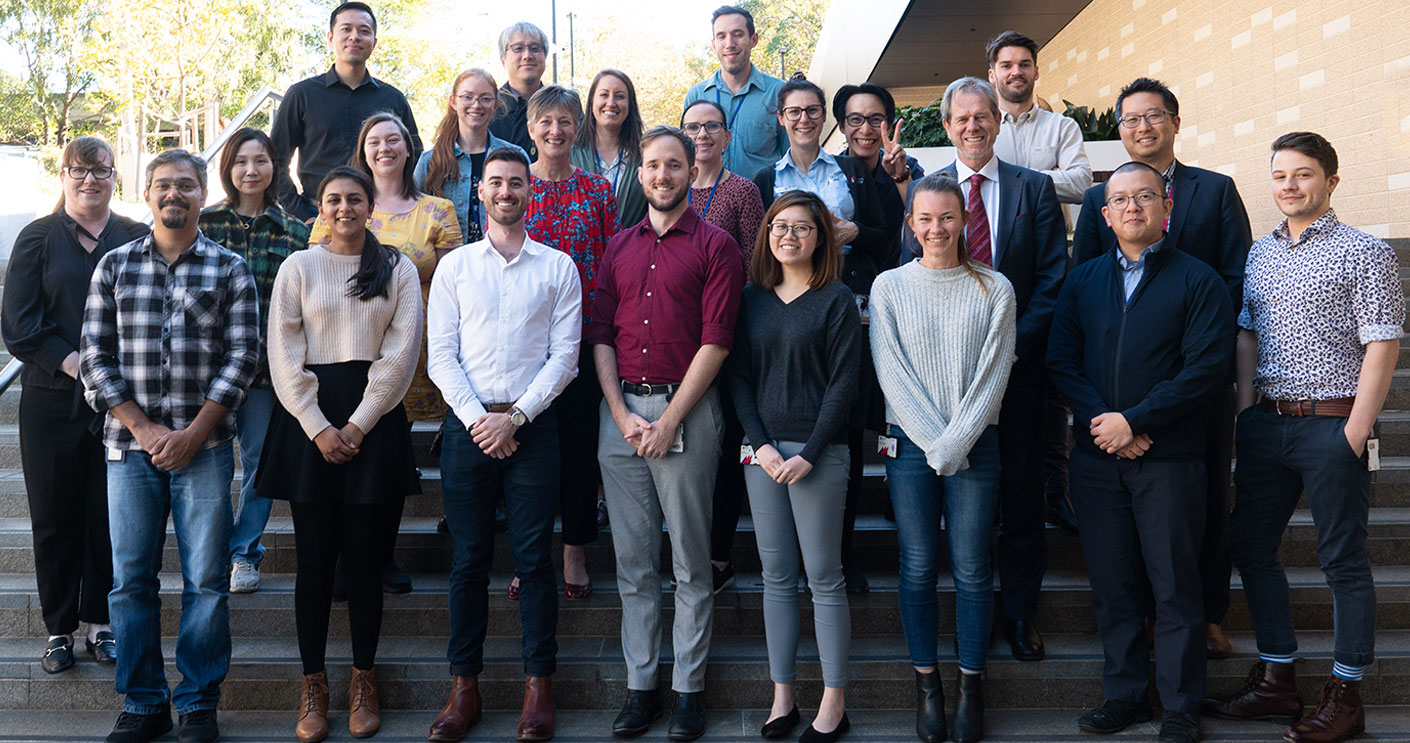Unit staff from top left:
Alan Nguyen, John Cho, Lewis Martin, Luke Wood
Jenny Fisher, Luna Chen, Emma Morrisroe, Dearbhla Mulcahy, Nicola Chapman, Nora Maher, Louise Grice, Stephanie Arrigo, Ray Yung, Howard Gurney, John Park
Abhijit Parshionikar, Shikara Keshiya, Luke Garcia, Callum Rutherford, Sam Ly, Bec Macnaughton, Hung Tran, Daniel Bice
Known clinical trials date back to 500BC and probably took place even before then! The first documented controlled clinical trial was conducted in 1747. They’ve changed a lot since then. Our Clinical Trials Unit explains the International Clinical Trials Day (May 20) and what they do: it’s a little different to trying to treat scurvy on a ship in the 1700s!
In an excerpt recovered from a surgeon onboard Captain James Cook’s ship Salisbury, Dr James Lind endeavoured to establish a treatment for scurvy though a trial. In an excerpt recovered from his notes, he describes his trial on the 20th May 1747:
On the 20th of May 1747, I selected twelve patients in the scurvy, onboard the Salisbury at sea. Their cases were as similar as I could have them. They all in general had putrid gums, the spots and lassitude, with weakness of the knees. They lay together in one place, being a proper apartment for the sick in the fore-hold; and had one diet common to all, viz. water gruel sweetened with sugar in the morning; fresh mutton-broth often times for dinner; at other times light puddings, boiled biscuit with sugar, etc., and for supper, barley and raisins, rice and currants, sago and wine or the like. Two were ordered each a quart of cyder a day. Two others took twenty-five drops of elixir vitriol three times a day … Two others took two spoonfuls of vinegar three times a day … Two of the worst patients were put on a course of sea-water … Two others had each two oranges and one lemon given them every day … The two remaining patients, took … an electary recommended by a hospital surgeon … The consequence was, that the most sudden and visible good effects were perceived from the use of oranges and lemons; one of those who had taken them, being at the end of six days fit for duty … The other was the best recovered of any in his condition; and … was appointed to attend the rest of the sick. Next to the oranges, I thought the cyder had the best effects …” (Dr James Lind’s “Treatise on Scurvy” published in Edinburgh in 1753)
Clinical trials are an integral part of our Faculty of Medicine, Health and Human Sciences and our Macquarie University Hospital. With our dedicated Clinical Trials Unit and university campus location, alongside a world-class hospital, clinics, laboratory, radiology facilities, onsite ethics management, and an onsite hotel for remote and regional clinical trial patients to stay, we are uniquely positioned to support clinical trials. Our facilities provide options to patients of cutting-edge, innovative medications and devices, and opportunities for our doctors to be at the forefront of medical practice.
The Unit currently supports 109 clinical trials, on subjects ranging from cancers, diseases, devices, to gastrointestinal and respiratory issues, and includes a number of ‘first in human’ trials. From one trial in 2013, the Unit has grown to support Principal Investigators conducting trials in multiple therapeutic areas across MQ Health, including oncology, cardiology, respiratory medicine, GI, endocrinology, ophthalmology, anaesthetics, and surgery. The results of these trials answer scientific questions that dictate the treatment of future patients and international standards of care in medicine.
When you next need a treatment, whether it is a medication, a device, surgery, a vaccine, or a myriad of other possible interventions, consider for a moment the innovation, the design, the volunteers, the network of expertise and the effort that has gone into developing the evidence behind that ‘evidence-based’ care you are receiving.
Find out more about the Unit or sign up for a clinical trial.


 Back to homepage
Back to homepage
Keep up the amazing work CTU, you are wonderful!